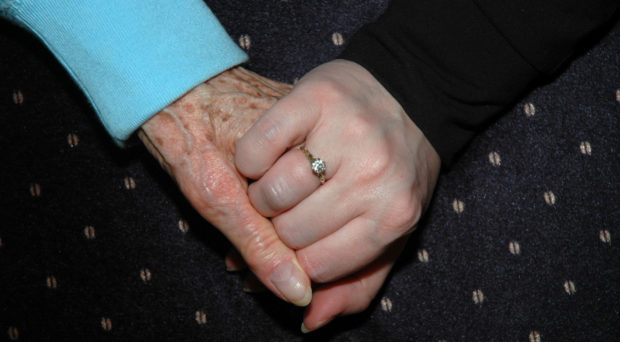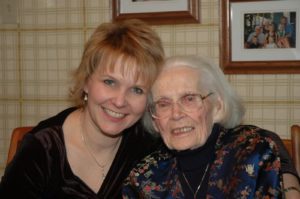
Family carers are often invisible to the health care system in meeting the care needs of older people. Yet, family carers – people who assist a family member or friend with challenges resulting from illness, disability or aging – provide three-quarters of the care older adults receive. Demands on family carers are increasing as populations age, disability rates increase, and demands on our health and continuing care sectors escalate. In these circumstances, sustainability of family care becomes a pressing issue.
To better understand family caring roles, and how technology might support them, we conducted focus groups and an online survey with carers in Canada. As reported in our new study in BMC Geriatrics, we learned that family carers want to enhance the care they currently provide, but they recognize that they have to protect their own capacity to care first.
Protecting family carers’ well-being

To protect their own well-being, and their ongoing capacity to provide care, family carers want to take better care of themselves, develop better coping strategies, and have opportunities for mentorship and socialization.
Family carers sought more time and space for themselves as part of their overall sustainability. Sustainability in this context refers to carers’ ability to balance the demands of caring for their loved ones without jeopardizing their own health, well-being, and quality of life. This is easier said than done as carers struggle to find a few hours to care for themselves as individuals with their own interests and needs while caring for others. Developing better coping strategies and becoming more resilient is a learned skill. Rebalancing the negative and positive aspects of caregiving, focusing on mindfulness, reducing stress, and celebrating small victories can help reframe the emotional experience of caregiving. As one carer put it,
“If caregivers had time off, their health would hopefully remain good. Currently, burnout and health implications are inevitable.”
Yet, at times, family carers feel guilty about putting their own needs first. They want “better networking with other caregivers, sharing our stories to make things easier,” and reducing the social isolation they often experience.
Enhancing family carers’ capacity to provide quality care
To enhance caregiving capacity, family carers want information about their care receivers’ conditions to help them plan, and the ability to navigate existing resources, programs and supports.
Knowing “what comes next” is a central desire for many family carers, so that they can plan for an unpredictable future, manage expectations, and make informed decisions. Having this sense of control contributes to their overall well-being. One carer wished for
“…a crystal ball so I know what the future might look like, so I can prepare more for what might be required as we go forward.”
Family carers also feel lost, navigating fragmented health and social support services without a road map. They may not know what supports and programs are available or whether they qualify for any they do know about. Making sense of the flood of online information is overwhelming in the face of family carers’ time-consuming care responsibilities. Another carer described the situation as follows:
“It is like a library with the books in a pile on the floor and no card catalogue to even let me know where to start.”
Targeted technology development can help carers achieve their goals

When considering technology development to support carers, traditional problem‐focused approaches to technology design can limit discussions to performing caregiving tasks, failing to capture the relational and emotional aspects of caregiving. While technology is not the panacea that product developers and policy makers hope for, family carers did offer suggestions about how they are, or could be, using technology to enhance and preserve their caregiving capacity. Some carers use off-the-shelf technology to support their caregiving.
“My [Smart] watch tells me to breathe. It tells me to stand. Honestly. Sometimes it gets me up and I take a moment. I breathe.”
Other family carers thought of ways to modify existing technology to make it support their goals. They imagined:
- Private internet-based chat rooms or interactive apps for information exchange.
- A comprehensive, searchable repository of available supports that can yield individually tailored ‘system’ navigation.
- Advanced search engines that use artificial intelligence to organize, evaluate, synthesize and summarize large amounts of information available from the internet.
- Smart watches that monitor blood pressure or heart rate and proactively offer calming or stress reducing activities and techniques.
- Interactive smart phone applications, like Siri, to help carers problem-solve and find solutions to in-the-moment issues like dealing with care receivers’ challenging behaviors.
- Networking applications or online portals to connect family carers to mentors, counselors and each other.
- Telephone information services to point family carers to services, supports and guidance along their care journeys.
- Systems that connect carers, providing opportunities for socialization, recreation and reducing social isolation.
Of course, technology alone is not enough to sustain family care work. According to University of Birmingham social policy professor Paul Burstow, “getting the balance right between ‘tech’ and ‘touch’ is vital.” The insights gained from our work are an important first step in achieving this balance by understanding carers’ goals and figuring out how to support them in meaningful ways.
Comments